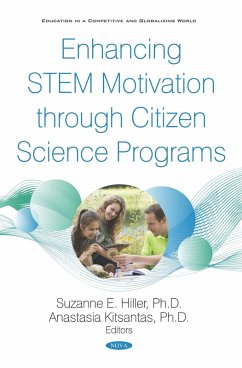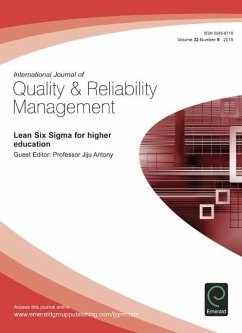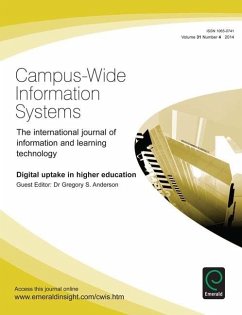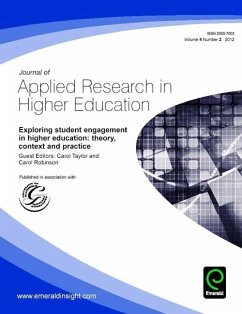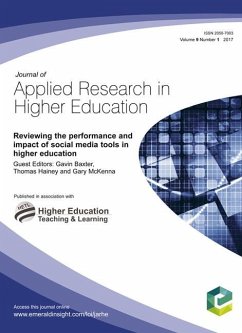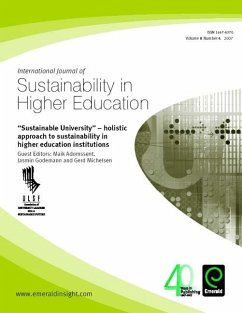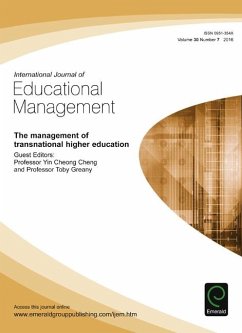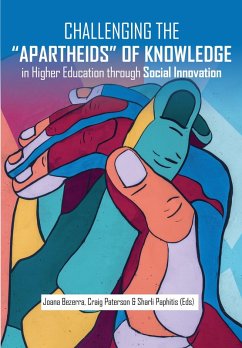
Enhancing employability through placements in Higher Education (eBook, PDF)

PAYBACK Punkte
63 °P sammeln!
Successfully securing employment upon completing university studies can be a challenge at both undergraduate and postgraduate level. Qualifications, skills and abilities solely acquired in a university setting are now viewed as insufficient by many organisations, who increasingly demand workplace experience as a pre-requisite for employment. A recent report showed that there has been a recovery in the UK graduate market with the number of positions available being at their highest since the 2007 recession. However, 37% of positions in the top 100 graduate recruiting organisations will be taken...
Successfully securing employment upon completing university studies can be a challenge at both undergraduate and postgraduate level. Qualifications, skills and abilities solely acquired in a university setting are now viewed as insufficient by many organisations, who increasingly demand workplace experience as a pre-requisite for employment. A recent report showed that there has been a recovery in the UK graduate market with the number of positions available being at their highest since the 2007 recession. However, 37% of positions in the top 100 graduate recruiting organisations will be taken by students who have already worked for the organisation; emphasising the importance of the relationship between workplace experience and graduate employment, and suggesting that students with experience of the workplace appear to have an employment advantage. The traditional approach to combining workplace experience and study, particularly at undergraduate level, has been the sandwich placement where a full year is spent in industry. However, summer internships, shorter placements, live project work with companies and volunteering modules are just a few examples of different initiatives to improve employability and set academic university learning into the context of the workplace. The six papers presented here consider a range of projects showcasing current research and developments in the field, including collaboration between universities and industry, a comparison of different approaches to employer engagement in two universities, a focus on student self-efficacy, placements and their role in the development of employability from an employer rather than a student perspective, a framework to understand the learning gained through short industrial placements at masters level, the challenges faced in a curriculum redesign to include a meaningful work-based experience into an education course, and a discussion of strategies to support reflective practice by students while on placement to develop their practitioner capability. Each paper contributes to some critical debates in furthering the development of authentic work related experience for students. The importance of developing mutually beneficial relationships with industry, incorporating the views of all stakeholders in curriculum development, strategies for the development of reflection by students and the development of alternative approaches are all discussed. Higher education institutions must maintain relevant policies and practices that meet the needs of students and employers and the initiatives discussed in this ebook demonstrate the breadth of practice and innovation in the sector to enhance student employability.
Dieser Download kann aus rechtlichen Gründen nur mit Rechnungsadresse in A, B, BG, CY, CZ, D, DK, EW, E, FIN, F, GR, HR, H, IRL, I, LT, L, LR, M, NL, PL, P, R, S, SLO, SK ausgeliefert werden.




